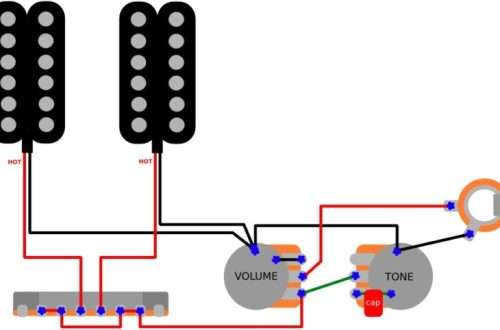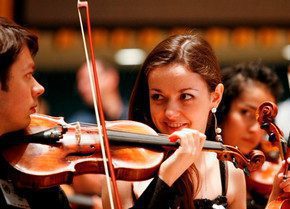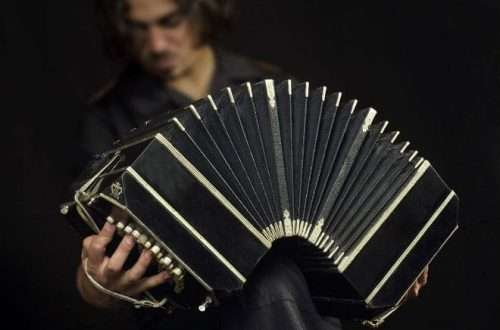Famous choruses from Verdi’s operas
Contents
In contrast to the early bel canto tradition, which emphasized solo arias, Verdi gave choral music an important place in his operatic work. He created a musical drama in which the destinies of the heroes did not develop in a stage vacuum, but were woven into people’s life and were a reflection of the historical moment.
Many choruses from Verdi’s operas show the unity of the people under the yoke of invaders, which was very important for the composer’s contemporaries who fought for Italian independence. Many choral ensembles written by the great Verdi later became folk songs.
Opera “Nabucco”: chorus “Va’, pensiero”
In the third act of the historical-heroic opera, which brought Verdi his first success, the captive Jews mournfully await execution in Babylonian captivity. They have nowhere to wait for salvation, because the Babylonian princess Abigail, who seized the throne of her insane father Nabucco, gave the order to destroy all Jews and her half-sister Fenena, who converted to Judaism. The captives remember their lost homeland, beautiful Jerusalem, and ask God to give them strength. The growing power of the melody turns the prayer almost into a battle call and leaves no doubt that the people, united by the spirit of love of freedom, will stoically endure all trials.
According to the plot of the opera, Jehovah performs a miracle and restores the repentant Nabucco’s mind, but for Verdi’s contemporaries, who did not expect mercy from higher powers, this chorus became an anthem in the liberation struggle of the Italians against the Austrians. Patriots were so imbued with the passion of Verdi’s music that they dubbed him “Maestro of the Italian Revolution.”
************************************************** **********************
Opera “Force of Destiny”: chorus “Rataplan, rataplan, della gloria”
The third scene of the third act of the opera is dedicated to the everyday life of the Spanish military camp in Velletri. Verdi, briefly leaving the romantic passions of the nobility, masterfully paints pictures of people’s life: here are rude soldiers at a halt, and the cunning gypsy Preziosilla, predicting fate, and sutlers flirting with young soldiers, and beggars begging for alms, and the caricatured monk Fra Melitone, reproaching a soldier in debauchery and calling for repentance before battle.
At the end of the picture, all the characters, to the accompaniment of only one drum, unite in a choral scene, in which Preziosilla is the soloist. This is perhaps the most cheerful choral music from Verdi’s operas, but if you think about it, for many soldiers going into battle, this song will be their last.
************************************************** **********************
Opera “Macbeth”: chorus “Che faceste? Dite su!
However, the great composer did not limit himself to realistic folk scenes. Among Verdi’s original musical discoveries are the witches’ choruses from the first act of Shakespeare’s drama, which begin with an expressive female screech. Witches gathered near the field of a recent battle reveal their future to the Scottish commanders Macbeth and Banquo.
Bright orchestral colors clearly depict the mockery with which the priestesses of darkness predict that Macbeth will become the king of Scotland, and Banquo will become the founder of the ruling dynasty. For both thanes, this development of events does not bode well, and soon the witches’ predictions begin to come true…
************************************************** **********************
Opera “La Traviata”: choruses “Noi siamo zingarelle” and “Di Madrid noi siam mattadori”
The bohemian life of Paris is full of reckless fun, which is repeatedly extolled in the choral scenes. However, the words of the libretto make it clear that behind the falseness of the masquerade lies the pain of loss and the fleetingness of happiness.
At the ball of the courtesan Flora Borvois, which opens the second scene of the second act, carefree “masks” gathered: guests dressed up as gypsies and matadors, teasing each other, jokingly predicting fate and singing a song about the brave bullfighter Piquillo, who killed five bulls in the arena for the sake of love of a young Spanish woman. The Parisian rakes mock true courage and pronounce the sentence: “There is no place for courage here – you need to be cheerful here.” Love, devotion, responsibility for actions have lost value in their world, only the whirlpool of entertainment gives them new strength…
Speaking about La Traviata, one cannot fail to mention the well-known table song “Libiamo ne’ lieti calici”, which the soprano and tenor perform accompanied by the choir. The courtesan Violetta Valerie, sick with consumption, is touched by the passionate confession of the provincial Alfred Germont. The duet, accompanied by guests, sings of fun and youth of soul, but phrases about the fleeting nature of love sound like a fatal omen.
************************************************** **********************
Opera “Aida”: chorus “Gloria all’Egitto, ad Iside”
The review of choruses from Verdi’s operas ends with one of the most famous fragments ever written in opera. The solemn honoring of the Egyptian warriors who returned with victory over the Ethiopians takes place in the second scene of the second act. The jubilant opening chorus, glorifying the Egyptian gods and brave victors, is followed by a ballet intermezzo and a triumphal march, perhaps familiar to everyone.
They are followed by one of the most dramatic moments in the opera, when the maid of the pharaoh’s daughter Aida recognizes her father, the Ethiopian king Amonasro, among the captives, hiding in the enemy camp. Poor Aida is in for another shock: the pharaoh, wanting to reward the valor of the Egyptian military leader Radames, Aida’s secret lover, offers him the hand of his daughter Amneris.
The interweaving of passions and aspirations of the main characters reaches a culmination in the final choral ensemble, in which the people and priests of Egypt praise the gods, slaves and captives thank the pharaoh for the life given to them, Amonasro plans revenge, and lovers lament the divine disfavor.
Verdi, as a subtle psychologist, creates in this chorus a grandiose contrast between the psychological states of the heroes and the crowd. Choruses in Verdi’s operas often complete acts in which the stage conflict reaches its highest point.
************************************************** **********************



